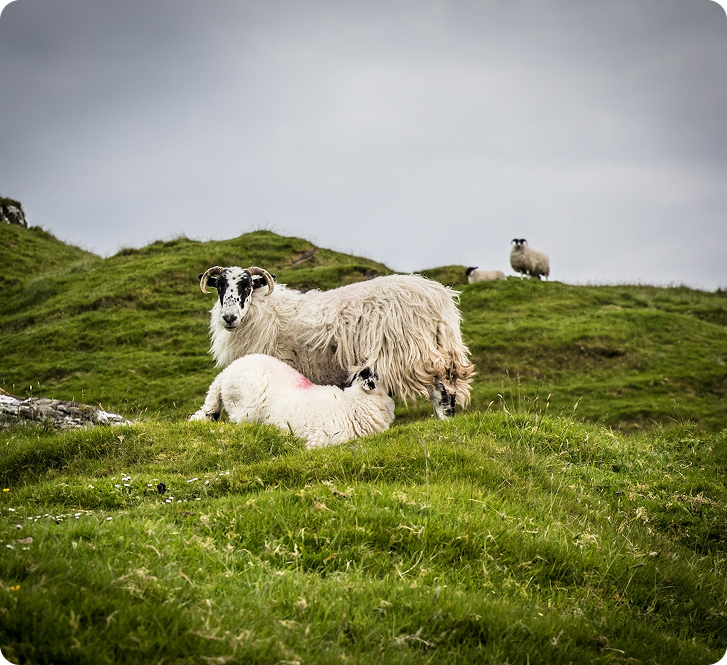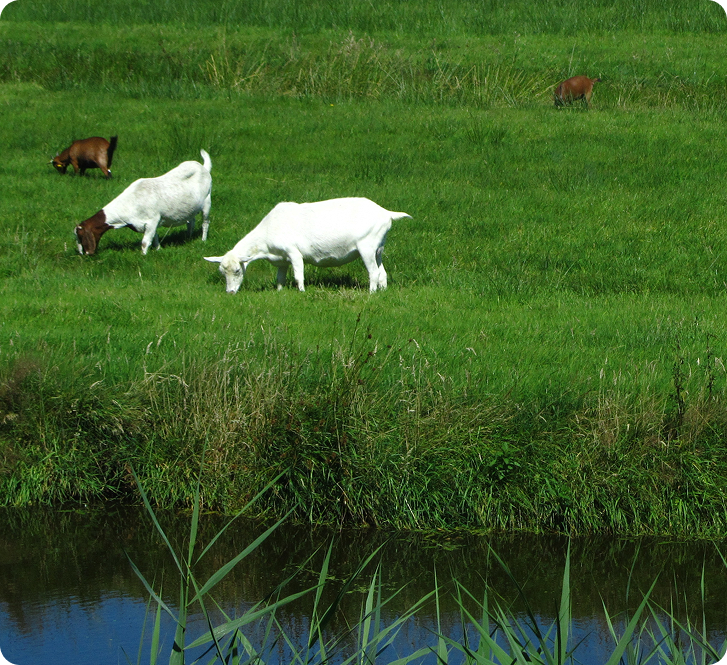Good food starts with good principles.

Why Grass-Fed Lamb and Goat Meat Deserve a Spot on Your Plate
When it comes to meat, the options at the butcher counter or grocery store can feel overwhelming—beef, pork, chicken, and maybe a few exotic cuts if you’re lucky. But two underappreciated stars are quietly gaining traction among foodies, health enthusiasts, and eco-conscious eaters alike: grass-fed lamb and goat meat. These flavorful, nutrient-packed proteins offer a host of benefits that go beyond taste, from boosting your well-being to supporting sustainable farming. If you haven’t considered adding them to your diet, here’s why grass-fed lamb and goat might just become your new favorites.
Flavor That Stands Out
If you’ve ever tasted grass-fed lamb or goat, you know they bring something special to the table. Lamb offers a rich, slightly earthy flavor with a tender, juicy texture that pairs beautifully with bold spices like rosemary, garlic, or cumin. Goat, often described as milder than lamb but more complex than beef, has a subtle sweetness that shines in stews, curries, or slow-roasted dishes. The grass-fed difference? A deeper, more nuanced taste, thanks to the diverse plants the animals graze on. Grain-fed meat, by contrast, can taste uniform and less vibrant, missing that pasture-raised magic.
Chefs and home cooks alike are catching on. From Moroccan tagines to Caribbean goat curries, these meats are versatile enough to star in global cuisines while elevating simple grilling or roasting. Plus, the healthy fat content in grass-fed cuts adds a melt-in-your-mouth quality that’s hard to beat.

Better for the Planet
The benefits of grass-fed lamb and goat extend beyond your plate—they’re a win for the environment, too. Raising these animals on pasture aligns with regenerative farming practices that prioritize soil health, biodiversity, and carbon sequestration. Here’s how:
- Carbon Sink: Grazing animals, when managed properly, help trap carbon in the soil. Grass-fed systems can offset greenhouse gas emissions more effectively than grain-fed operations, which rely on energy-intensive feed crops like corn and soy.
- Less Resource-Intensive: Goats and sheep are natural foragers, thriving on rugged terrain where crops can’t grow. They require less water and land than cattle, making them a sustainable choice in arid regions or small farms.
- Reduced Waste: Unlike industrial feedlots, grass-fed systems don’t produce concentrated manure lagoons that pollute waterways. The animals fertilize the land as they graze, closing the nutrient loop.

The Power of Pasture-Raised Eggs: Why They’re Worth Cracking Into
Eggs are a kitchen staple—versatile, affordable, and packed with goodness. But not all eggs are created equal. Pasture-raised eggs, laid by hens that roam freely on open fields, are a cut above the rest, offering benefits that go beyond the carton. From superior nutrition to happier hens and a healthier planet, these eggs are more than just a breakfast option—they’re a choice with impact. Here’s why pasture-raised eggs deserve a spot in your fridge and on your plate.
A Nutritional Upgrade
When hens peck and forage on pasture, their eggs reflect the bounty of their diet. Unlike caged or even “free-range” hens (which often get just a sliver of outdoor time), pasture-raised hens feast on grasses, bugs, and seeds alongside their feed. This natural buffet translates into eggs with a nutritional edge:
- Richer in Omega-3s: Studies show pasture-raised eggs can have up to twice the omega-3 fatty acids of conventional eggs. These heart-healthy fats support brain function, reduce inflammation, and may lower the risk of chronic diseases.
- Boosted Vitamins: The sunlight and diverse diet mean more vitamins A, D, and E—up to three times higher than in factory-farmed eggs. Vitamin D, especially, is a standout, strengthening bones and immunity, while A and E protect your eyes and cells.
- Vivid Yolks, Better Taste: That deep orange yolk? It’s a sign of beta-carotene from fresh plants, an antioxidant that fights aging. Plus, it delivers a creamy, robust flavor that makes every scramble or omelet a treat.
- High-Quality Protein: With about 6-7 grams per egg, pasture-raised eggs offer the same complete protein as others, but the hens’ active lifestyle ensures a lean, wholesome product you can feel good about.
Compared to pale, watery yolks from confined hens, pasture-raised eggs are a nutritional powerhouse—proof that how an animal lives shapes what it gives.
Happier Hens, Better Eggs
The secret to pasture-raised eggs starts with the hens. On our regenerative farm, they’re not cooped up in cages or crowded barns—they roam freely, scratching the soil, basking in the sun, and living as nature intended. This isn’t just feel-good fluff; it matters:
Natural Behavior:
Hens are foragers by instinct. Pasture gives them space to peck, dust-bathe, and socialize, reducing stress and disease that plague industrial systems. Happy hens lay better eggs—full stop.
No Hormones or Antibiotics:
Our pasture-raised flock doesn’t need the additives common in factory farms to boost production or fight illness. You get pure, clean eggs, free of unwanted extras.
Ethical Eating:
Choosing pasture-raised means supporting a system that values animal welfare. It’s a small but real way to align your plate with your principles.
Contact Us


